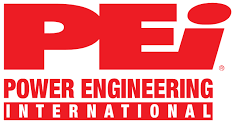German energy company RWE has commissioned UK-based Marine Power Systems (MPS) to develop a project plan for delivering up to 1GW of floating wind using the ports ABP Port Talbot and Pembroke Dock for foundation and turbine assembly.
In the lead up to the study, RWE has signed MoU’s with the two deep water ports in the region (ABP Port Talbot and Pembroke Dock) to explore how these facilities may be utilised to support Celtic Sea floating wind projects.
The study will focus on identifying what materials and components could be sourced from South Wales and the wider supply chain.
Also, the study will allow RWE to learn more about MPS’s offshore wind platform solution called PelaFlex, and how its structural components could be deployed from the region’s ports into the Celtic Sea.
Have you read?
Researchers design novel floating wind turbine for deep waters
Five areas flagged for floating wind development in Celtic Sea
RWE, Equinor and Hydro plan large-scale offshore wind farm in the North Sea
The study will build upon collaborations already established this year between RWE, the ports as well as Tata Steel UK, in preparation for the Crown Estate’s Celtic Sea seabed leasing expected to take place next year.
Philippa Powell, RWE Celtic Sea project lead, said: “We are delighted to be working with Marine Power Systems to find solutions for maximising opportunities for region’s supply chains, which will be so important for local and regional communities. At the same time, the study will test the future capability of our local ports to support the delivery of the multi-billion-pound opportunities that the Celtic Sea floating wind opportunity offers.
“MPS are reaching some exciting milestones in the development of their floating devices and we also look forward to seeing the results from the commercial demonstrator.”
Gareth Stockman, CEO at Marine Power Systems said: “We are delighted to be supporting RWE to help them understand exactly how our unique and flexible floating platform technology can be deployed in the Celtic Sea and how we can leverage local supply chain to do that.
“Our technology has been designed to optimise local content delivery through a decentralised logistics model, and these benefits help utility scale developers such as RWE minimise costs whilst maximising local economic benefits and accelerating industrial scale farm development.”










